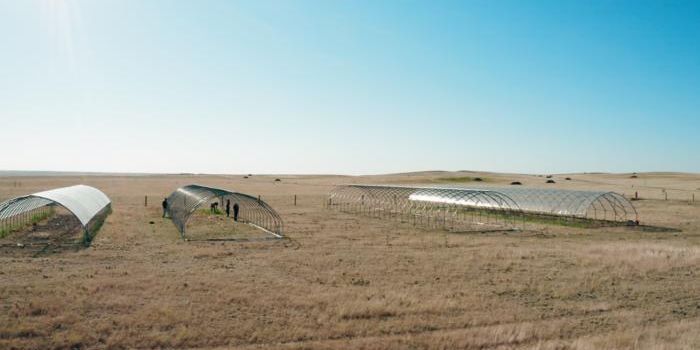Air pollution can shorten babies' telomeres
Ever heard of telomeres? Reach way back to your high school biology class and remember that telomeres are special parts of DNA that let chromosomes be copied during cell division. I.e., they’re really important. Remember the mention of the eternal spring of youth and lengthening your telomeres? That myth was spread because over time as our cells continue to divide, our telomeres shorten, and that means we’re slowly losing genomic stability. This is a bad thing; in fact, it’s a Very Bad Thing, because shorter telomeres have been linked with cancer and heart disease, cognitive decline, aging, and premature death. Yeah, so, let’s keep those telomeres long.
But turns out air pollution can cause your telomeres to shorten - and not just yours, but babies’ too. According to new research published in the journal Environment International, a study conducted before and after a coal-burning power plant in Tongliang, China closed in 2004 discovered that babies born before the closure had shorter telomeres than those conceived and born after the plant stopped polluting the air. Duh-duh-duhhh.
The government decided to close the power plant in May 2004 because it realized that community health was suffering from the coal-produced air pollution. Because the announcement was expected, scientists Deliang Tang and Frederica Perera at Columbia University's Mailman School of Public Health were able to gather data on ambient polycyclic aromatic hydrocarbon (PAH) levels, biomarkers, and health outcomes in two different groups of children: the pre- and post-shutdown babies, so to speak. The pre-shutdown babies were exposed to the high levels of air pollution, while the post-shutdown babies were not.
The research team looked at the umbilical cord blood of 255 newborns, about half of whom were born before the plant closure and half-conceived and born after, in order to determine differences in the telomere lengths of the individuals.
"An individual's telomere length at birth is known to influence their risk for disease decades later during adulthood," says Tang. "Further follow-up is needed to assess the role telomere length plays in health outcomes in the context of early life exposure to air pollution."
In pre-shutdown babies, the researchers found higher levels of PAH-DNA cord adducts, the toxic component of air pollution that was emitted from the power plant. They connected higher levels of these adducts in cord blood with shorter telomeres as well as with lower levels of brain-derived neurotrophic factor (BDNF), a protein involved in neuronal grown. In other words, more toxins equal shorter telomeres and good brain growth. This may not come as a common-sense surprise but the research is significant for the field.
"The new study adds to the evidence that closing this coal-burning power plant was beneficial to the health and future well-being of newborns there," says Perera, director of the Columbia Center for Children's Environmental Health and professor of Environmental Health Sciences at the Mailman School of Public Health. "Moreover, we know that lowering exposure to air pollution anywhere will be beneficial to children's health and long-term potential." And, I’d like to add, to adult’s health as well.
Sources: Science Daily, Environment Interantional









